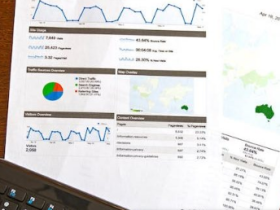Introduction
It is amazing how the heart can function so well for so long, for so many people, given its constant workload. However, sometimes it can also fail due to certain factors such as a poor diet, inactivity, smoking, infection, unfavorable genes, and more. High blood pressure is one such heart condition that makes the heart work harder than it needs to. Untreated, it scars and damages the arteries, leading to heart diseases such as heart attack, stroke, eye damage, heart failure, and fatty buildups in the arteries, known as atherosclerosis. If you want to learn more about the condition and are willing to try potential treatment options, consider reaching out to Hypertension Clinical Trials Near You.
In this article, we will talk about heart health and what measures can be taken to take care of your heart health!
What are the Symptoms of High Blood Pressure?
Even when blood pressure readings reach dangerously high levels, most people with high blood pressure have no symptoms hence called a “Silent Killer”. It can exist for years without causing any symptoms. Although a few high blood pressure patients may have these symptoms:
- Headaches
- Breathing difficulty
- Nosebleeds
- Skin flushing
- Red spots in front of the eyes
- Dizziness
These symptoms, however, are not specific. They usually do not appear until high blood pressure has progressed to a severe or life-threatening level.
When to Seek Medical Care?
Blood pressure screening is an essential component of overall health care, regardless of the gender. The frequency with which you should have your blood pressure checked is determined by your age and overall health. As soon as a person turns 18, their blood pressure should be checked at least every two years. Ask for a blood pressure check every year if you’re 40 or older, or if you’re 18 to 39 and at high risk of high blood pressure.
Classification of Blood Pressure Ranges
The American Heart Association recognizes blood pressure in five ranges:
Normal
Blood pressure readings of less than 120/80 mm Hg are considered normal. If your results fall into this category, maintain heart-healthy habits such as a balanced diet and regular exercise.
Prehypertension
Elevated blood pressure is defined as readings that are consistently between 120 and 129 systolic and less than 80 mm Hg diastolic. People who have high blood pressure are more likely to develop high blood pressure unless they take steps to control the condition.
Stage 1 hypertension
Stage 1 hypertension occurs when blood pressure consistently ranges between 130 and 139 mm Hg systolic or 80 and 89 mm Hg diastolic. Doctors will likely prescribe lifestyle changes and may consider adding blood pressure medication at this stage of high blood pressure based on your risk of atherosclerotic cardiovascular diseases (ASCVD), such as a heart attack or stroke.
Stage 2 hypertension
Stage 2 hypertension occurs when blood pressure is consistently 140/90 mm Hg or higher. Doctors are likely to prescribe a combination of blood pressure medications and lifestyle changes at this stage of high blood pressure.
Hypertensive emergency
This stage of hypertension necessitates medical attention. Wait five minutes before testing again if your blood pressure suddenly rises above 180/120 mm Hg. If your readings remain abnormally high, contact your doctor right away. Chance is you could be in the midst of a hypertensive crisis.
If your blood pressure is higher than 180/120 mm Hg and you have symptoms of potential organ damage such as chest pain, shortness of breath, back pain, numbness/weakness, a change in your vision, or difficulty speaking, don’t wait for it to go away on its own. Seek medical attention right away.
What are the Complications of High Blood Pressure?
High blood pressure puts too much pressure on the artery walls, which can harm blood vessels and organs. The damage will be greater if there is higher blood pressure and the longer it remains uncontrolled. Uncontrolled high blood pressure can result in complications such as:
Stroke or heart attack: A heart attack, stroke, or other complications can occur as a result of artery hardening and thickening caused by high blood pressure or other factors.
Heart Failure: When your blood pressure is high, your heart has to work harder to pump blood. The strain thickens the walls of the heart’s pumping chamber. This is known as left ventricular hypertrophy. When the heart is unable to pump enough blood to meet the body’s needs, this is referred to as heart failure.
Kidney issues: High blood pressure can narrow or weaken the blood vessels in the kidneys. This can result in kidney damage.
Eye problems: Blood vessels in the eyes can become thickened, narrowed, or torn as a result of high blood pressure. This can lead to vision loss.
Changes in memory or comprehension: High blood pressure that is not under control can impair one’s ability to think, remember, and learn.
Dementia: Blood flow to the brain can be restricted if arteries become narrowed or blocked. This can result in vascular dementia, a type of dementia. A stroke that disrupts blood flow to the brain can also result in vascular dementia.
How to Diagnose High blood pressure?
If you have high blood pressure, your doctor may recommend tests to determine the cause.
Laboratory tests: Blood and urine tests are performed to look for conditions that can cause or worsen hypertension. Tests are performed, for example, to check your cholesterol and blood sugar levels. You may also have lab tests to check the function of your kidneys, liver, and thyroid.
Electrocardiogram (ECG or EKG): This very fast painless test measures the electrical activity of the heart. It can tell you how fast or slow your heart is beating. During an ECG, electrodes are attached to the chest and, in some cases, the arms or legs. The sensors are linked by wires to a machine that prints or displays the results.
Echocardiogram: This noninvasive exam creates detailed images of the beating heart using sound waves. It depicts how blood flows through the heart and its valves.
What can you do to Avoid or Control High Blood Pressure?
Many people with high blood pressure can lower or maintain their blood pressure in a healthy range by making lifestyle changes. Discussing this with your medical professional is the right way.
- Participate in at least 150 minutes of physical activity per week (about 30 minutes a day, 5 days a week)
- Smoking cessation
- Eating a healthy diet, which includes limiting sodium (salt) and alcohol consumption
- Maintaining a healthy weight
- Stress management
Some people with high blood pressure require medication to manage their blood pressure in addition to making positive lifestyle changes.
If you suspect you have high blood pressure or have been told you have a high risk of developing high blood pressure, consult your health care team right away. By lowering your blood pressure, you can help protect yourself from heart disease and stroke, also known as cardiovascular disease (CVD).
Summary
High blood pressure frequently has no symptoms and is regarded as a “silent condition.” This applies to all people, regardless of age or gender. But that doesn’t make it any less serious. High blood pressure, if left untreated, can lead to strokes, heart attacks, dementia, kidney failure, and other complications. That is why you should have your blood pressure checked at least once a year. To learn more about hypertension, find paid clinical trials in Texas.
Also Read: What Are The Benefits Of Usana Health Products For Women








Leave a Reply